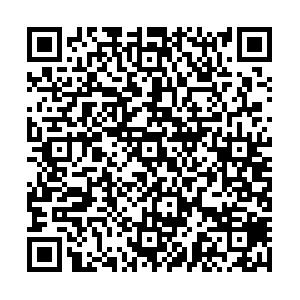| [1] |
Philip Hallinger,Joseph Murphy.Assessing the Instructional Management Behavior of Principals[J].The Elementary School Journal,1985,86(2):217-247.
|
| [2] |
张新平,赵越.重思教学领导[J].教育发展研究,2018,38(18):31-36.
|
| [3] |
K.A.Leithwood,D.J.Montgomery.The Role of the Elementary School Principal in Program Improvement[J].Review of Educational Research,1982,52(3):309-339.
|
| [4] |
Council of Chief State School Officers(CCSSO).Interstate School Leaders Licensure Consortium:Standards for School Leaders[M].Washington,D.D. Author,1996:24-26.
|
| [5] |
Bossert,S.T.,Dwyer,D.C.,Rowan,B..The Instructional Management Role of the Principal[J]. Educational Administration Quarterly, 1982,18(3):34-64.
|
| [6] |
Murphy.Methodological,Measurement,and Conceptual Problems in the Study of Instructional Leadership[J].Educational Evaluation and Policy Analysis,1988,10(2):117-139.
|
| [7] |
冯大鸣. 西方教学领导研究的再度兴盛及逻辑转向[J]. 教育研究,2012,33(3):135-139.
|
| [8] |
Marsha Ing. Using Informal Classroom Observations to Improve Instruction[J]. Journal of Educational Administration, 2010,48(3):337-358.
|
| [9] |
Eleen Horng,Susanna Loeb. New Thinking about Instructional Leadership[J]. Phi Delta Kappan,2010(11):66-70.
|
| [10] |
墨菲.范德堡教育领导力评估:以学习为中心的评估模式[J]. 华东师范大学学报(教育科学版),2011,29(1):1-10.
|
| [11] |
Jessica G.Rigby.Three Logics of Instructional Leadership[J]. Educational Administration Quarterly,2014,50(4):610-644.
|
| [12] |
Sisman, Mehmet. Factors Related to Instructional Leadership Perception and Effect of Instructional Leadership on Organizational Variables:A Meta-Analysis[J].Educational Sciences Theory & Practice,2016(16):1761-1787.
|
| [13] |
Wang, T.. School Leadership and Professional Learning Community:Case Study of Two Senior High Schools in Northeast China[J]. Asia Pacific Journal of Education, 2016(36):202-216.
|
| [14] |
Shengnan Liu, Philip Hallinger. Principal Instructional Leadership, Teacher Self-Efficacy, and Teacher Professional Learning in China:Testing a Mediated-Effects Model[J]. Educational Administration Quarterly,2018,54(4):501-528.
|
| [15] |
Philip Hallinger. Does Principal Leadership Make a Difference in Teacher Professional Learning? A Comparative Study from China and Thailand[J]. Comparative and International Education, 2019, 49(3):341-357.
|
| [16] |
Elmore, R.F..Building a New Structure for School Leadership[M]. Washington, D. C.:The Albert Shanker Instrtute,2000:13.
|
| [17] |
Seashore Louis K. How does Leadership Affect Student Achievement? Results from a National US Survey[J].School Effectiveness and School Improvement,2010,21(3):315-336.
|
| [18] |
王绯烨, 洪成文, 萨莉·扎帕达. 美国教师领导力的发展:内涵、价值及其应用前景[J]. 外国教育研究,2014, 41(1):93-103.
|
| [19] |
Tan, C. Y.. Examining School Leadership Effects on Student Achievement:The Role of Contextual Challenges and Constraints[J]. Cambridge Journal of Education,2016,48(1):21-45.
|
| [20] |
Leithwood K,Harris A,Hopkins D. Seven Strong Claims about Successful School Leadership[J]. School Leadership and Management,2008,28(1):27-42.
|
| [21] |
Robinson V. M. J.,Lloyd C. A,Rowe K. J. The Impact of Leadership on Student Outcomes:An Analysis of the Differential Effects of Leadership Types[J]. Educational Administration Quarterly,2008,44(5):635-674.
|
| [22] |
Marks,H.M. Principal Leadership and School Performance:An Integration of Transformational and Instructional Leadership[J]. Educational Administration Quarterly,2003,39(3):370-397.
|
| [23] |
Leithwood K,Patten S,Jantzi D. Testing a Conception of How School Leadership Influences Student Learning[J]. Educational Administration Quarterly,2010,46(5):671-706.
|
| [24] |
Sahin,S. The Relationship between Instructional Leadership Style and School Culture[J]. Kuram Ve Uygulamada Egitim Bilimleri,2011,11(4):1920-1927.
|
| [25] |
Boyce,J., Bowers,A.J..Toward an Evolving Conceptualization of Instructional Leadership as Leadership for Learning[J]. Journal of Educational Administration, 2018,56(2):64-87.
|
| [26] |
Hallinger,McCary.Developing the Strategic Thinking of Instructional Leaders[J]. Elementary School Joumal,1990, 91(2):54.
|
| [27] |
Brazer,S.D., Bauer, S. C.. Preparing Instructional Leaders[J]. Educational Administration Quarterly, 2013,49(4):645-684.
|
| [28] |
Blasé,Joseph,Jo Blasé.Effective Instructional Leadership:Teachers Perspectives on How Principals Promote Teaching and Learning in Schools[J].Journal of Educational Administration, 2000,38(2):130-141.
|
| [29] |
McEwan E.K..7 Steps to Effective Instructional Leadership[M]. Thousand Oaks,Calif:Crown Press,2003:258.
|
| [30] |
梁茜, 代蕊华. 我国区域教育均衡研究的主题及趋势——基于CSSCI来源期刊文献关键词的可视化分析[J]. 基础教育,2018,15(3):87-96.
|
| [31] |
Petri Salo,Jan Nylund,Else Stjernstrøm. On the Practice Architectures of Instructional Leadership[J]. Educational Management Administration & Leadership,2014,43(4):490-506.
|
| [32] |
Tony Bush. Instructional Leadership and Leadership for Learning:Global and South African Perspectives[J]. Education as Change,2013,17(S1):5-20.
|
| [33] |
郑鑫, 尹弘飚. 教学领导的再度兴盛?——兼论西方教育领导研究的转向[J]. 比较教育研究,2014,36(10):21-25+36.
|
| [34] |
De Maeyer,S.,Rymenans,R.,Van Petegem,P.. Educational Leadership and Pupil Achievement:The Choice of a Valid Conceptual Model to Test Effects in School Effectiveness Research[J]. School Effectiveness and School Improvement, 2007(18):125-145.
|
| [35] |
Philip Hallinger. A Review of Three Decades of Doctoral Studies Using the Principal Instructional Management Rating Scale:A Lens on Methodological Progress in Educational Leadership[J]. Educational Administration Quarterly,2011,47(2):271-306.
|
| [36] |
Philip Hallinger. Leadership for Learning:Lessons from 40 Years of Empirical Research[J]. Research in Educational Administration,2011,49(2):125-142.
|
| [37] |
徐瑾劼, 杨洁. 学习导向型领导:影响校长角色转变的关键因素——基于上海TALIS 2013调查结果的实证研究[J]. 全球教育展望,2016,45(7):104-117.
|
| [38] |
David Gurr, Lawrie Drysdale. System Leadership and School Leadership[J].Research in Educational Administration & Leadership,2018,3(2):207-229.
|
| [39] |
张成林, 叶繁."探索与创新:教育理论与实践研究的新路向" 论坛综述[J]. 现代教育论丛,2019(3):91-96.
|
| [40] |
赵德成, 马晓蓉. 教学领导力研究中的问题与展望[J]. 外国教育研究,2016,43(9):60-70.
|
| [41] |
代蕊华,万恒.构建学习共同体中的校长教学领导力研究[J]. 教师教育研究,2016,28(2):59-63.
|

 点击查看大图
点击查看大图



 下载:
下载: